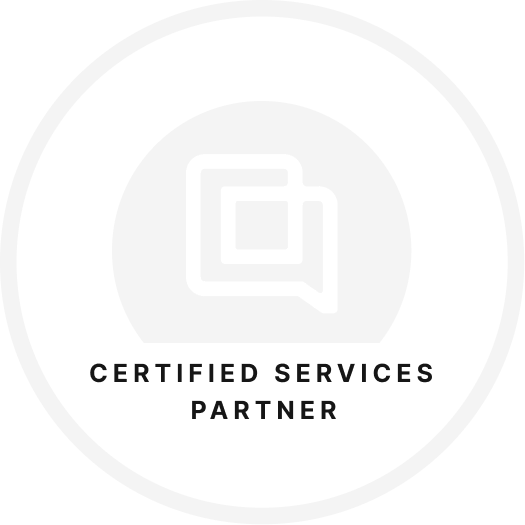In the competitive SaaS landscape, effective customer support plays a critical role in driving satisfaction and retention. With users expecting fast, seamless service, a strong support system can create the difference between churn and loyalty. As customer demands grow, many companies are turning to a SaaS ticketing system to streamline support operations and maintain high service standards. These systems often include helpdesk functionalities, providing comprehensive ticket management designed to enhance customer support efficiency.
An outsourced SaaS ticketing system offers a scalable, cost-effective solution to manage customer inquiries, automate workflows, and ensure timely responses. Overall, businesses can reduce internal strain while improving support quality by leveraging external expertise and technology.
But is outsourcing the right move for your organization? Let’s explore whether an outsourced SaaS ticketing system aligns with your goals, and what factors you’ll need to consider before making the switch.
What are outsourced SaaS ticketing systems?

An outsourced SaaS ticketing system is essentially hiring a third-party company to manage your SaaS company’s support tickets and operations—including handling service requests received via a ticketing system or platform.
This centralizes customer inquiries, automates workflows, and simplifies issue tracking, without the need for internal infrastructure or resources.
When a support request comes in, be it via email, chat, or web form, the system creates a support ticket. Web forms help consolidate customer data, enhancing the overall customer experience. It then assigns this support ticket based on rules or AI logic, and tracks its progress all the way through to resolution. Automated ticket assignment enhances efficiency, minimizes errors, and allows support teams to concentrate on delivering better service. Key features include automated responses, SLA management, escalations, and performance analytics.
In other words, businesses can gain access to robust support tools faster implementation, and 24/7 coverage by outsourcing. This allows internal teams to focus on core growth efforts while still delivering top-tier customer service.
Benefits of outsourcing your saas ticketing system

Now that we’ve covered what an outsourced SaaS ticketing system is and how it works, let’s explore why more businesses are choosing to adopt this model. Here’s a quick breakdown of the benefits:
Cost savings
Outsourcing a SaaS ticketing system can significantly lower operational costs. SaaS stands for Software as a Service—which is a cloud-based solution that allows users to access applications via web browsers, eliminating the need for local installations and reducing costs. Instead of investing in infrastructure, software licenses, and ongoing system maintenance, businesses pay a service fee for an all-in-one solution consisting of an expert team of support agents and the ticketing system. Additionally, it reduces the need to hire and train a large in-house support team, cutting down on labor and overhead expenses.
Enhanced efficiency
Third-party providers often bring optimized workflows, dedicated expertise, and purpose-built tools that boost support team performance. Automated ticket routing, predefined escalation paths, and real-time tracking help reduce response and resolution times. Automated ticket creation enhances efficiency by minimizing repetitive tasks and allowing support teams to handle tickets effectively from creation to closure. This leads to faster issue handling and higher customer satisfaction.
Access to advanced technologies
Outsourced SaaS ticketing systems typically include access to cutting-edge technologies such as AI-driven chatbots. Automated messages can enhance customer support by simplifying communications, providing proactive support, and improving customer relationships. Additionally, these systems offer sentiment analysis, automated reporting, and machine learning-based ticket prioritization. Businesses can leverage these tools without the burden of building or maintaining them internally, saving time and capital.
Scalability and flexibility
As your customer base grows or seasonal demand shifts, outsourced systems can quickly scale up or down to match your needs. This scalability ensures the entire process remains efficient. Whether you’re expanding into new markets or managing a spike in sudden support volume, these solutions offer the flexibility to adapt without compromising service quality.
24/7 support availability
Outsourced providers often operate with global teams across multiple time zones. An open helpdesk ensures accessibility through smartphone browsers, making support operations efficient and effective even without specific mobile applications. This ensures customers receive timely assistance regardless of location or time of day, improving satisfaction and reinforcing trust in your brand.
How to choose the right SaaS ticketing system provider for your business

Selecting the right SaaS ticketing system provider is a strategic decision that can significantly impact your customer experience and operational efficiency.
Choosing the right partner to manage your SaaS help desk software and handle your support tickets is crucial for enhancing customer support and retention. Likewise, working with an expert team who can also help you manage a centralized knowledge base is essential for providing customers with easily accessible information. Knowledge bases enhance customer support by offering comprehensive FAQs and troubleshooting guides, which contribute to efficient resolution of queries and improve overall customer satisfaction.
Here are the key factors to consider when evaluating potential providers:
Align features with business objectives
Choose a provider whose features support your specific goals. For example, if your goal is faster resolution times, you need to look into how providers conduct real-time tracking—this is is vital for maintaining high service standards.
Having the right tools is crucial to achieving these objectives, as they enhance customer service and optimize user onboarding experiences. A system that aligns with your workflows will deliver better results and ROI.
Check for a user-friendly interface
A clean, intuitive interface boosts productivity for agents and improves the customer experience. User feedback can help improve the interface by providing direct input on usability and functionality. Look for platforms that are easy to navigate, require minimal training, and offer a seamless customer-facing portal.
Review the integration capabilities
Ensure the system integrates with your existing tech stack, such as your CRMS, chat platforms, eCommerce tools, and the like. Integrating other tools is crucial to enhance functionality, improve interconnectivity, and prevent information silos. Smooth integrations help streamline workflows and help eliminate data silos.
Security and compliance
Verify the provider follows security best practices, such as encryption, access controls, and regular audits, and complies with relevant regulations like GDPR or HIPAA. It is crucial to protect sensitive data by implementing robust security features like role-based access controls and encryption. This protects sensitive customer data and builds trust.
Assess the scalability
Your ticketing system should grow with you. Look for flexible pricing, infrastructure that can handle increased volume, and advanced features you can adopt over time. It’s crucial to always have the latest version of the software to ensure you benefit from automatic updates, the most recent features, and security enhancements without the need for manual patching or upgrades.
Customer support and training
Strong onboarding and ongoing support are essential. Opt for providers that offer training resources, live support, and dedicated access teams. Having available resources for support and training is crucial to ensure continuous assistance tailored to your needs, helping your staff get the most out of the system.
Addressing common challenges in SaaS ticketing outsourcing

While outsourcing a SaaS ticketing system can bring efficiency and stability, it also comes with its own set of challenges. Here are some of the common challenges you’ll need to look out for and how you can address them. Efficient support teams are crucial for handling these challenges effectively.
Consistency in offering fast, timely, and quality service
One of the primary concerns is maintaining quick response times. Minimizing response time is essential for improving customer satisfaction and service efficiency.
Another challenge is ensuring seamless communication and collaboration among team members. Utilizing collaboration tools, such as a shared inbox, can significantly enhance team collaboration by allowing multiple team members to access and manage a common email address.
Data security concerns
Outsourcing often involves sharing sensitive customer data with third-party providers, which can raise concerns around privacy and security breaches. To mitigate these risks:
- Choose vendors that comply with security standards such as GDPR, HIPAA, or SOC 2. It is crucial to protect sensitive data by ensuring robust security measures are in place.
- Ensure data encryption, role-based access control, and regular security audits are in place.
- Include security requirements and breach response protocols in your contract or SLA.
Maintaining service quality
Delegating customer support functions can lead to inconsistent service quality if not properly managed. To maintain high standards:
- Set expectations through detailed SLAs covering response times, resolution targets, and escalation procedures. For an example, see how Commission Hero maintained high-quality customer service with LTVplus.
- Conduct regular performance reviews and audits. Tracking the team’s performance is crucial for identifying areas of improvement and ensuring consistent service quality.
- Invest in agent training and provide access to a centralized knowledge base to ensure consistent messaging and resolutions.
Cultural and language barriers
Outsourcing to teams in different regions can result in communication gaps and misunderstanding, especially when dealing with a global customer base. To overcome these challenges:
- Select vendors with multilingual support and regional expertise. Managing communication across different channels, such as email, phone, live chat, and social media, is crucial for ensuring consistent customer service and satisfaction.
- Provide detailed brand voice guidelines and customer interactions protocols.
- Use collaboration tools and regular check-ins to foster team alignment and cohesion.
Dependency on third-party providers
Relying heavily on external providers can limit your control and flexibility, especially if the vendor experiences downtime or shifts in priorities. To manage this dependency:
- Maintain internal documentation and backups of key workflows and data. Cloud-hosted solutions offer reliability with features like uptime commitments, 24×7 monitoring, and regular backups.
- Have contingency plans in place, including the ability to switch vendors if needed.
- Negotiate service-level guarantees and exit clauses in your contracts to protect your business interests.
Start unlocking efficiency and satisfaction through Saas outsourcing
Outsourcing your SaaS ticketing system can offer streamlined operations, cost savings, and scalability. However, it’s not a one-size-fits-all solution. The key to success lies in evaluating whether a third-party system aligns with your business objectives, customer support needs, and growth strategy. Factors like system features, ease of use, integration capabilities, and vendor reliability should all play into your decision.
When you do decide to integrate an outsourced SaaS ticketing system, here are some best practices to consider:
- Engage stakeholders early. Involve IT, customer service, and compliance teams to ensure cross-functional alignment and buy-in. Efficiently managing support tasks is crucial for maintaining smooth operations.
- Run a pilot program. Test the system with a small group of agents or a specific support channel to assess usability and performance. Efficiently handling incoming tickets can significantly improve operational efficiency.
- Monitor and optimize. Set measurable KPIs, review SLA compliance, and gather feedback regularly. These practices assist in improving service quality.
When implemented carefully, an outsourced SaaS ticketing system can enhance operational efficiency, improve customer satisfaction, and free up internal resources to focus on strategic growth. Contact us today and unlock the competitive advantage of outsourcing in delivering exceptional customer experiences.





